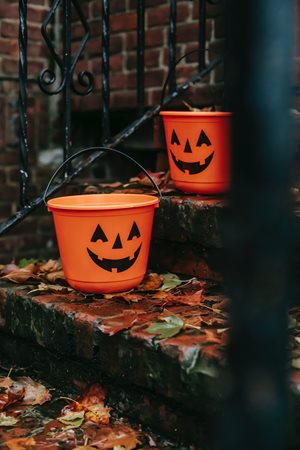Autumn from a dementia perspective
Autumn may be the most beautiful season of the year but to someone living with dementia, it can be a challenging time.
Autumn from a dementia perspective
Autumn may be the most beautiful season of the year but to someone living with dementia, it can be a challenging time. Lots of things change – we lose daylight, days are shorter, the evenings are longer, pavements and roads can look quite different with fallen leaves all over them and all these things can make life more confusing than it already is.
 Probably the worst thing to experience is children/strangers coming and knocking on the door in the dark evenings, dressed up as ghosts or monsters, making lots of noise and being (hopefully only playfully) threatening. I must admit I have never really enjoyed Hallowe’en even when my own daughters (now 28 and 30) were little and clamoured to go out after dark to “trick or treat”. Nowadays, I close all the curtains, switch off all the lights and turn the television up really loud to save any knocks at the door from waking the dog from her dreams!
Probably the worst thing to experience is children/strangers coming and knocking on the door in the dark evenings, dressed up as ghosts or monsters, making lots of noise and being (hopefully only playfully) threatening. I must admit I have never really enjoyed Hallowe’en even when my own daughters (now 28 and 30) were little and clamoured to go out after dark to “trick or treat”. Nowadays, I close all the curtains, switch off all the lights and turn the television up really loud to save any knocks at the door from waking the dog from her dreams!
For those with dementia, it can be a frightening evening, full of startling noise and goings-on. The usual flow of their day or evening is disturbed and disrupted with confusing happenings. They may become disorientated as to what time it is – is it bedtime or time to get up? Of course there are things that can help orientate them, such as Day & Night Dementia Clocks, or the Rosebud Reminder Clock that also gives prompts when it is time to go to bed or to have a drink.
The nicest thing to do is to visit your person with dementia around Halloween and just being there with them - giving them some company, distracting them from the noises by listening to music together, or chatting whilst browsing through an old family photo album, and perhaps quietly dealing with any unwanted visitors for them at the same time.
 It is hard for us to understand how someone with dementia can feel so overwhelmed with the changes that dementia brings, but I hope to be able to shed some light on this subject during my Home Visits and calls with those who are looking after someone with a dementia or cognitive impairment of some kind. If you suspect signs of early dementia, do contact me so that we can talk things through.
It is hard for us to understand how someone with dementia can feel so overwhelmed with the changes that dementia brings, but I hope to be able to shed some light on this subject during my Home Visits and calls with those who are looking after someone with a dementia or cognitive impairment of some kind. If you suspect signs of early dementia, do contact me so that we can talk things through.
Our Dementia Care Advice service is free to all Bluebird Care customers, offering advice, information & practical tips to help your person with dementia feel more confident and able to live well with dementia in their own homes for as long as possible. I look forward to meeting you as I work my way round West Berkshire and North Hampshire, but do get in touch directly if you have need any support in the meantime.
Written by Tamsin Hudson Dementia Care Adviser
How to find the right care for you or your relative
1. Find your local office
Bluebird Care delivers care from locally based offices, find yours to start your care journey today.
2. Get in touch with us
Fill in our call back form or give us a call to find out how we can help you.
3. Assessment
We’ll come out to you to find out what you or your loved one needs to help stay independent at home.
4. Care team chosen & care starts
You'll be cared for by our specially trained team to support you to remain at home for as long as possible.

